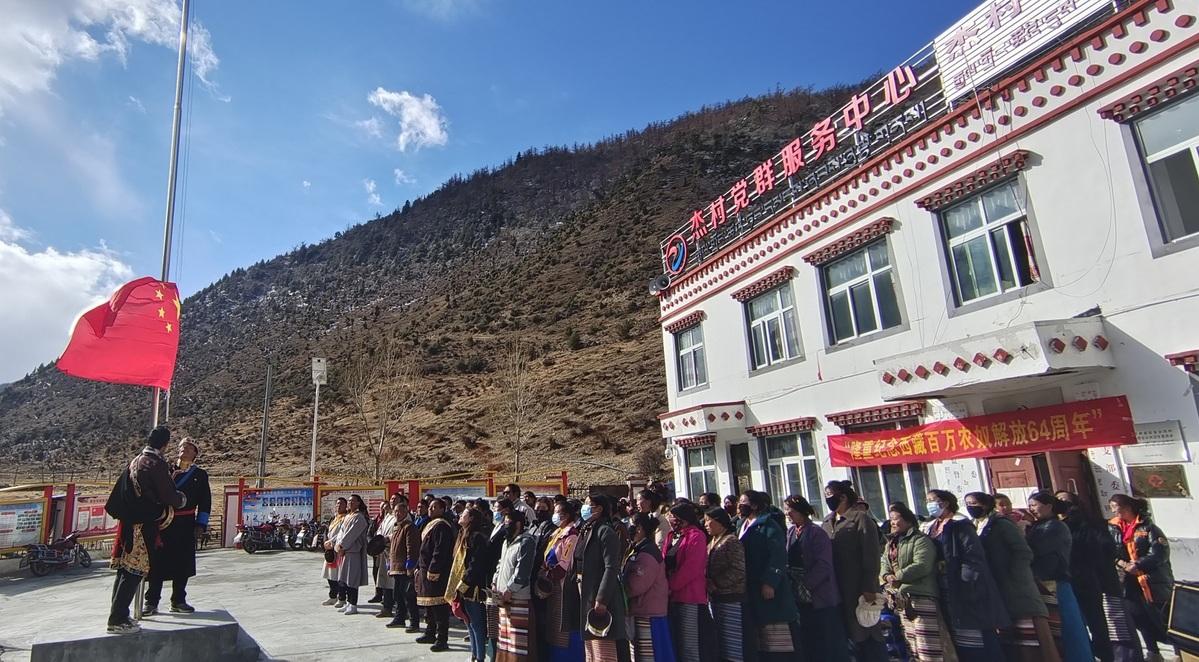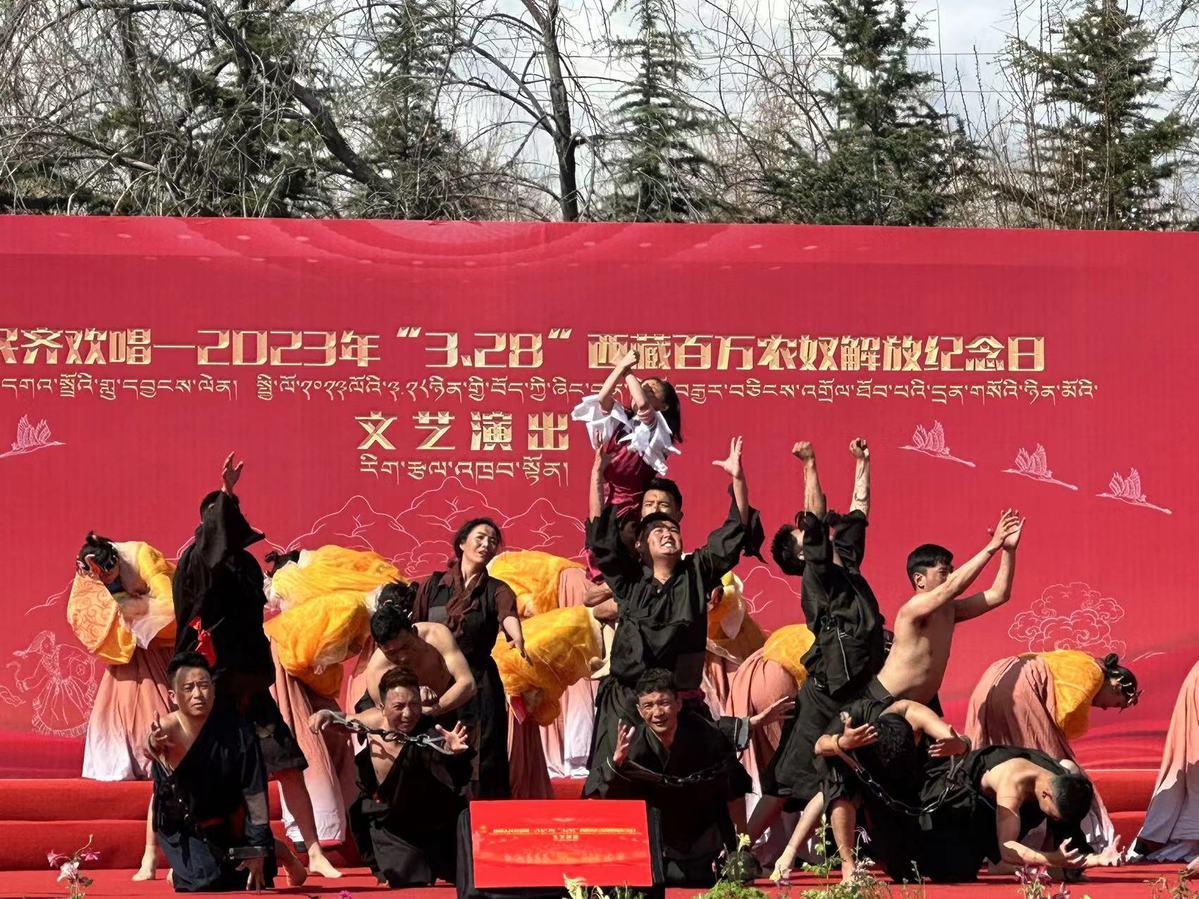Tibet celebrates liberation of serfs

A flag-raising ceremony is held at Potala Palace Square in Lhasa, Tibet, to celebrate Serfs' Emancipation Day on Tuesday. [Photo by Phenthok/For chinadaily.com.cn]
People from all walks of life in the Tibet autonomous region held various activities on Tuesday to mark anniversary of the liberation a million serfs.
Since 2009, March 28 has been celebrated in the region as Serfs' Emancipation Day. The annual commemoration recalls the democratic reforms of 1959 in the Tibet autonomous region that ended feudal serfdom.
A flag-raising ceremony was held at Potala Palace Square, and cultural performances were presented in different parts of Lhasa on Tuesday morning.

A flag-raising ceremony is held in a remote village of Nang county in the Tibet autonomous region to celebrate Serfs' Emancipation Day on Tuesday morning. [Photo provided to chinadaily.com.cn]
Since the democratic reform, the region has seen dramatic changes under the leadership of the Communist Party of China, with long-term support from other provinces and cities throughout the country.
"It is repeatedly emphasized by President Xi Jinping that history is the best textbook," said Yan Jinhai, chairman of the regional government, in a televised speech on Monday.
"On the day of the 15th commemoration of the liberation of Tibet's serfs, we solemnly hold activities to remember the history of suffering, appreciate the great new era and draw strength to move forward."
Sixty-four years ago, under the leadership of the CPC, the ethnic people of the region crushed an armed rebellion, carried out democratic reforms, and abolished Tibet's feudal theocratic serfdom imposed by a combination of political and religious powers, Yan said.

A cultural performance in Lhasa, Tibet, on Tuesday marks Serfs' Emancipation Day. [Photo provided to chinadaily.com.cn]
People dwelling on the roof of the world but living at the bottom of the world, received a new lease on life, and the plateau ushered in an era of light, Yan said.
Before the democratic reforms of 1959, beggars were everywhere in the region. They suffered from hunger and lack of clothing.
Absolute poverty has now been eradicated in a historic effort. All ethnic people in the region are now part of an all-around well-off society, and all enjoy the achievements of social and economic development.
By Daqiong and Palden Nyima in Lhasa
